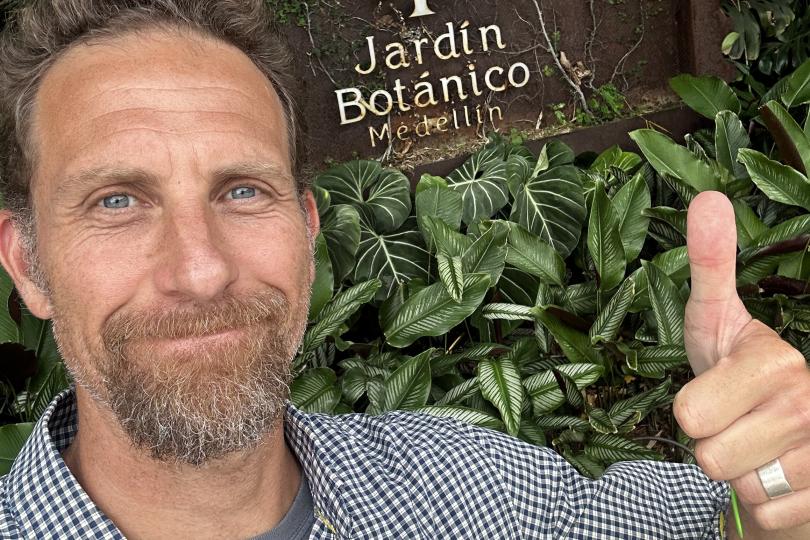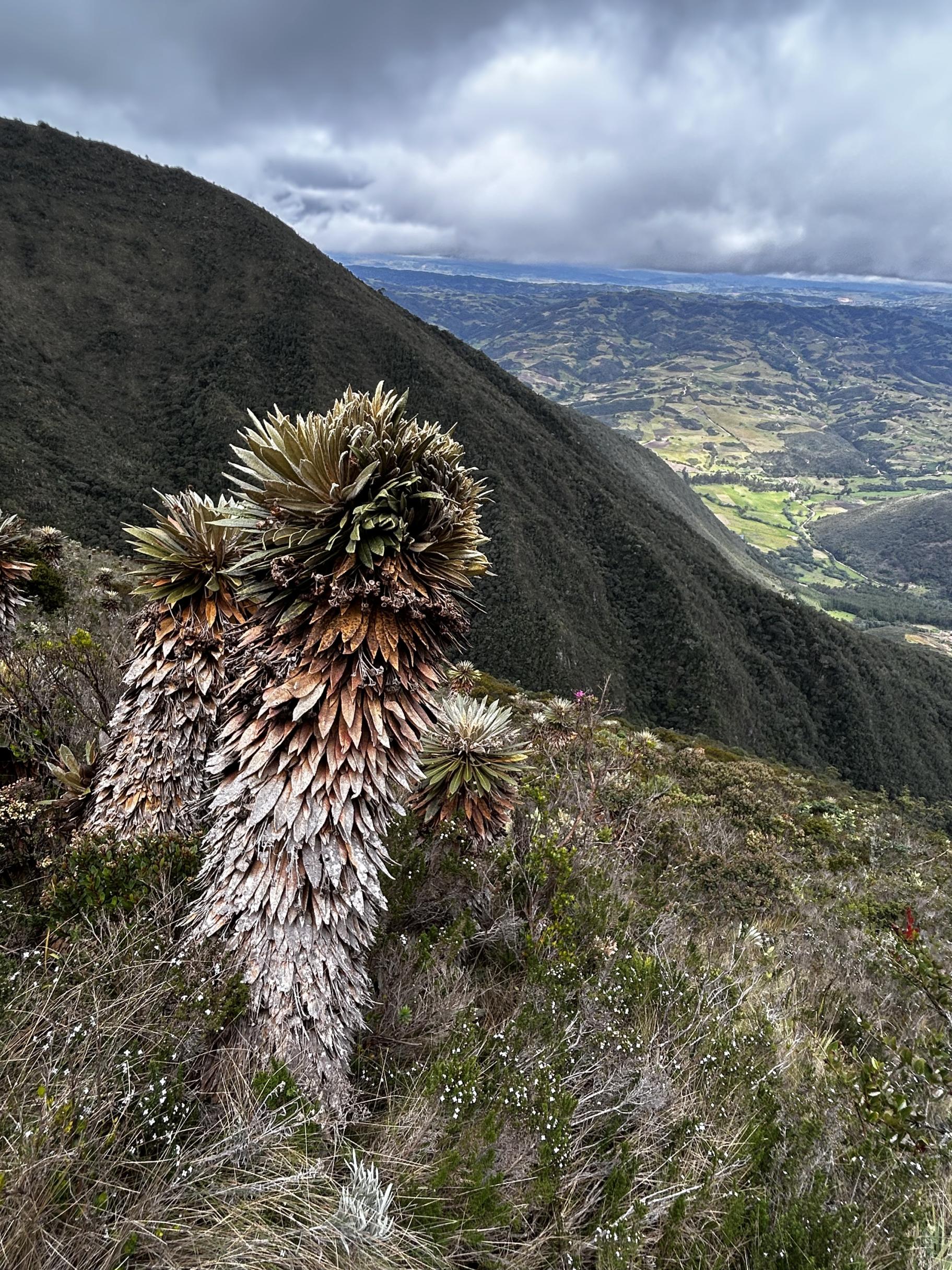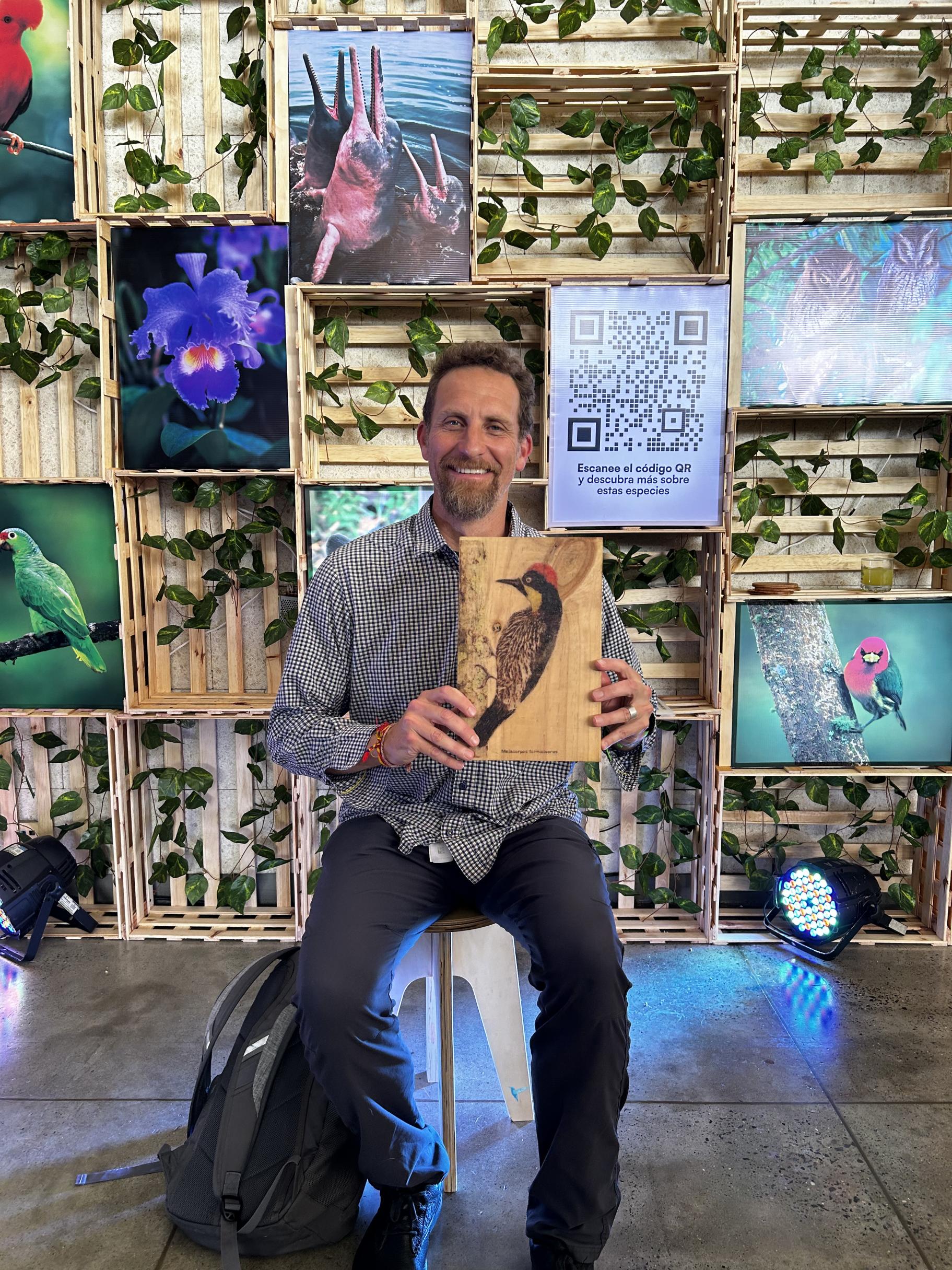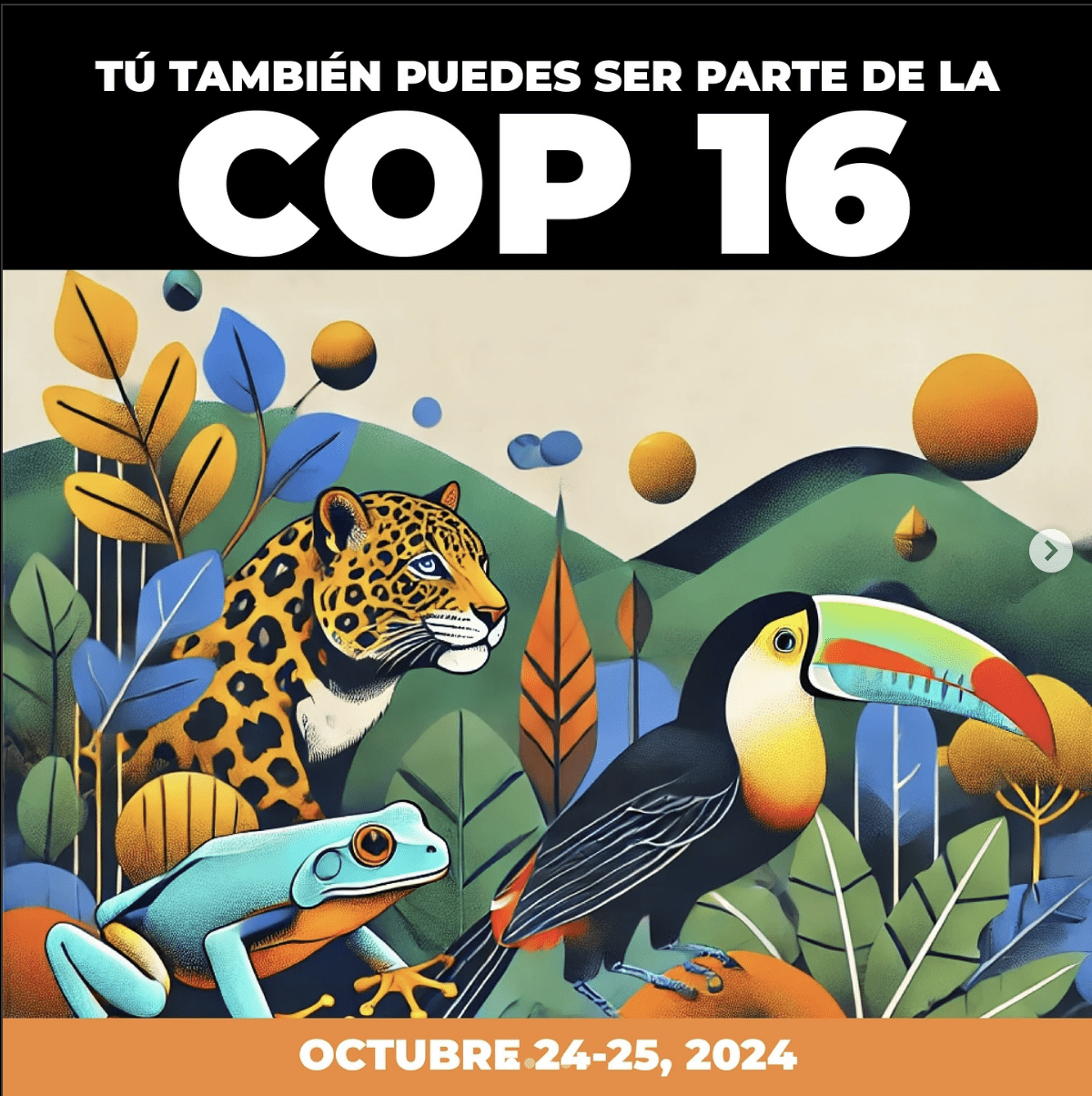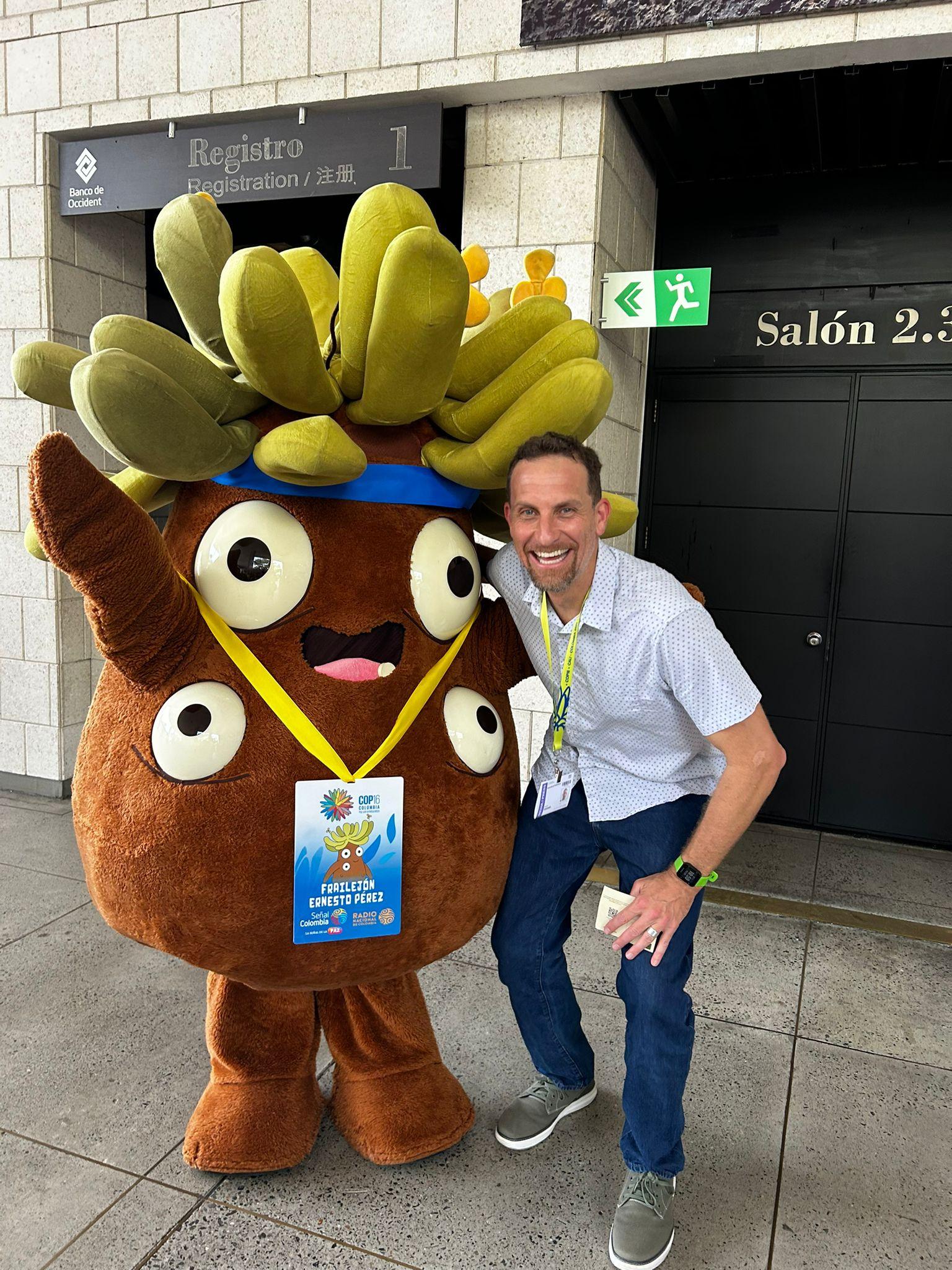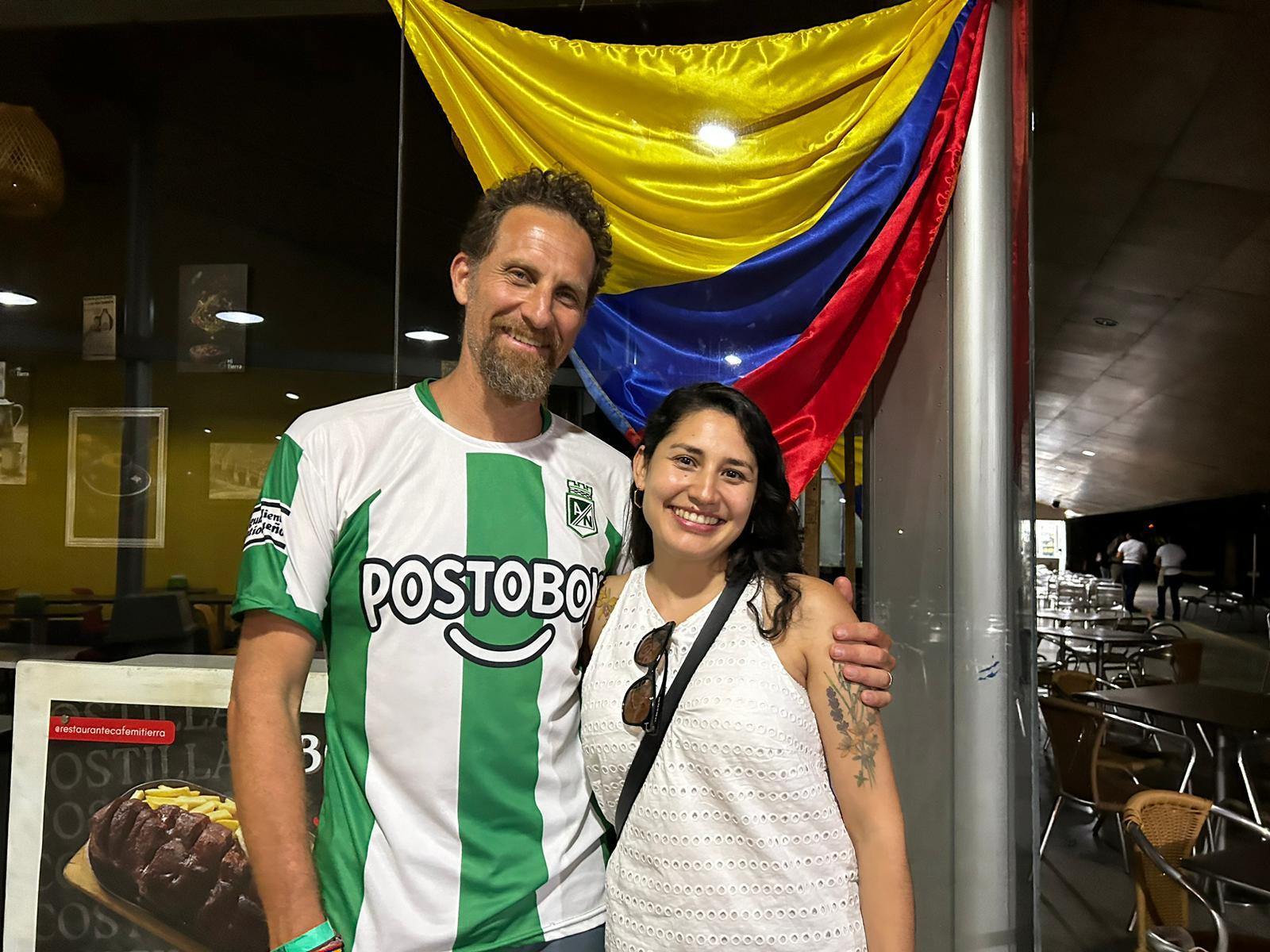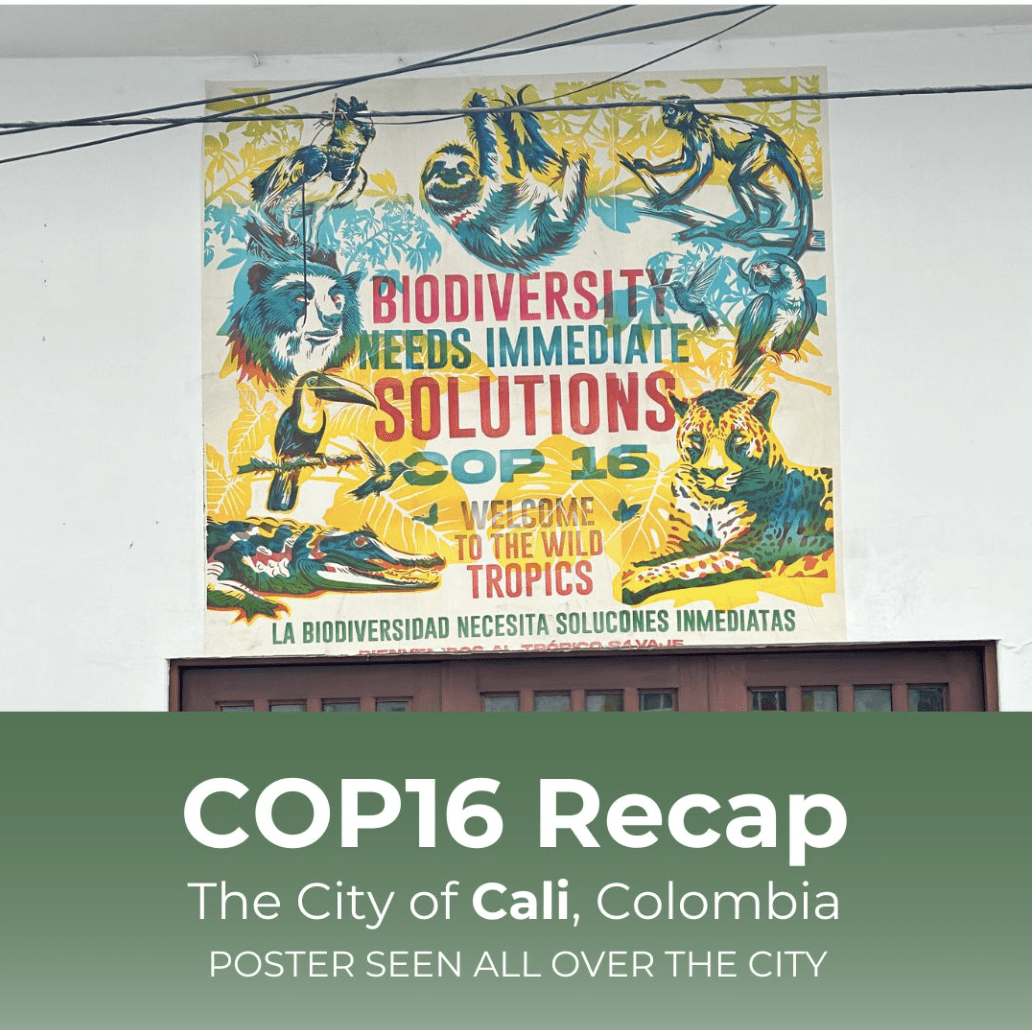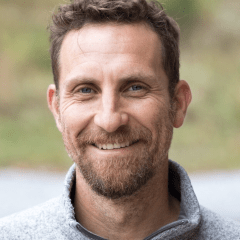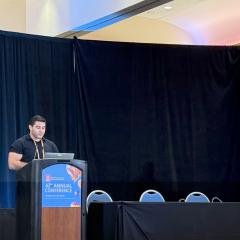Growing green leaders and conservation collaborations from Colombia to Boston
Dave Kramer’s career began as an educator in Colombia in the late 90’s, and he fell in love with the country in the process. What started as a short-term teaching position in Cali, Colombia has turned into a lifelong passion for the country and led to years of work in conservation and sustainable development in Latin America. Throughout his career supporting conservation and education initiatives, Dave has returned to Colombia many times. His wife is also from Colombia, so past visits have most frequently been to visit family, but Dave has always had “an itch to do more work there.” He currently works as the Director of Green Programs for Boston Green Academy, building programs and capacity for students to cultivate ‘green’ skills and make a difference during and beyond their high-school years. In 2024, support from the Pat Cooke Fund and a Switzer Professional Development Fund (PDF) grant allowed Dave to bring his work full circle between Colombia and Boston.
Beginning a journey through education and environmental action
When he taught middle school in Cali, Dave launched a new environmental elective and led the school ecology and outing club, including a 3-day backpacking trip with 30 students to the 14,000-foot Andean Paramo (high moor) ecosystem in Colombia’s coffee country. This experience fueled Dave’s desire “to help young people discover and exercise their voices and agency” and inspired young leaders who continue to impact the environment and community in Cali to this day, as Dave learned in his return to Cali last summer. (Keep reading to see this come full circle!)
After four years of teaching in Colombia and a few more as an educator in Boston, Dave attended Harvard Kennedy School for a MPP in Environment and Natural Resource Policy, where he received a Switzer Fellowship in 2004. Following his graduate work, he worked for 15 years in environmental development in Central America with EcoLogic, Verra and others, then managing the Planet Texas 2050 project at University of Texas Austin, often returning to Colombia to visit family, and work on passion projects to promote Colombian eco-tourism and environmental justice.
In 2021, Dave found himself returning to environmental education as Director of Green Programs and Partnerships at Boston Green Academy (BGA). BGA welcomes diverse students of all abilities, educates and empowers them to succeed in college and career, and prepares them to lead in the sustainability of our community and world. "My job is to work with teachers and students to meet the sustainability aspect of our mission," Dave explains. This includes coaching teachers to incorporate environmental justice into curriculum, coordinating interdisciplinary projects, and managing the city's only environmental science career and technical education pathway program.
At the time, Dave wrestled with whether coming back to working in a high school would limit his ability to continue working in the international environmental field. He used a Switzer Professional Development Fund grant (2021) to work with a career coach and tapped into connections from the Switzer Network to help him “keep at least one foot in the international and Latin American conservation scene.” Switzer Fellows have been a source of motivation and connection throughout his career. “The connections and support have been unreal," he says, emphasizing how the network has helped him "punch above my weight" in developing professional relationships and opportunities.
Returning to career roots in Colombia
Enacting his vision to connect his K-12 work with applied conservation, Dave was awarded a Pat Cooke Fellowship in 2024 to embark on a tour back to the schools and communities where his career began in Colombia. The funding “allowed me to explore programs at a range of educational institutions, seeing impressive examples of urban planning & renewal, meeting young people and adults whose resilience and thoughtful dedication to building a better world has left me in a humble state of awe,” Dave shared on LinkedIn. “Across Colombia, I witnessed the new national plastic waste reduction law, banning 21 kinds of single use plastics by 2030, starting with eight on July 7, 2024. I was immersed in fútbol fanaticism, soaked up breathtaking biodiversity, and stood before hundreds of masterful murals and street art.”
Dave’s trip was a way to go deeper with his environmental connection to Colombia. "I wanted to explore Colombia, not just as a son-in-law who eats great food," he joked. During his travels, he visited schools in Cali, Medellín and Bogotá, examining urban sustainability initiatives. He was particularly impressed by community-driven projects like river restoration programs and urban heat island mitigation strategies, and excited about ways to translate sustainability, curriculum and art ideas into practice back at BGA. The visit helped him network with leaders at Colegio Rochester, the First School in the World to Obtain Gold Certification from the TRUE ZERO WASTE Program, to advise his work at BGA.
COP16: A homecoming for biodiversity and collaboration
That summer, Dave knew that a recent relocation of the United Nations Conference of the Parties to the Convention on Biological Diversity (COP 16) meant it would be held in Cali in October 2024, and he attended pre-COP16 events to get a lay of the land. “When I learned COP16 would be in Cali,” he said, “I knew there was not a chance I could miss this.” He leveraged a Switzer PDF grant (2024) to attend the conference and focus on refreshing connections, continuing to build education relationships and advance collaborative projects with Intercultural Productions and Monte Jungla.
Homecoming journey
Dave started his five-day trip with a visit to Colegio Bolívar to participate in their COP16 Sustainability Fair. It was “something of a homecoming” for Dave, as Colegio Bolívar was one of the schools where he started his career teaching in Cali.
This place is literally why I do the work I do now and why I’ve taken this nearly 30-year journey as an environmentalist.
At Colegio Bolívar, he gave a talk to “students and teachers highlighting Colombia’s biodiversity treasure and the great opportunity that COP16 represents for the city’s schools,” according to an interview he gave after the presentation. The talk was a full-circle moment for Dave, returning to where his career began, and “a stroll down memory lane, too… It was really a love letter to Cali and Colombia, an exploration of my own journey and also a deep dive into biodiversity and nature-based solutions,” Dave shared. “I explored these themes: Fuel: Beauty and warmth, Resilience: pain and challenge and setbacks, Wonder: Power of awe and curiosity and biophilia, Non-linearity: Winding and Weaving, Openness: Boundary blurring, openings, opportunity, and serendipity + the fact that it’s impossible to score without taking a shot, doing things we never thought we’d be capable of.”
This talk was a return to Dave’s roots, setting the stage for the rest of this trip to help him reconnect with sustainable environmental development and conservation in Colombia through partnerships around COP16.
COP16 buzzes with energy for biodiversity
At COP16, Dave assisted Intercultural Productions in their video production work in the Conference’s Blue Zone. He helped the team prepare a short prediction video about COP16, and during the gathering he recruited delegates to interview about their biodiversity work, such as Christine Colvin, Water Policy Lead at WWF International. Dave also supported an Intercultural Productions’ collaboration with the Conservation Biology Institute and one of the premier wildfire fighting institutions in Latin America, the Cali Volunteer Firefighting Association, to “co-create a vision for a Latin American and Caribbean regional resource for wildlife fire science, research, education and training.”
In addition to his efforts with Intercultural Productions, Dave was inspired by the buzzing energy of COP16. Right when he arrived at the main venue, he was delighted to see a giant teddy bear version of “Ernesto the Frailejón,” a cartoon character who burst onto the scene in Colombia during the pandemic and educates the public through catchy songs and a goofy voice about water conservation and the páramo ecosystem. (Dave’s favorite place on Earth, Colombia possesses 50% of our planet’s páramos - they exist in an altitude belt between roughly 3000 and 5000 meters above sea level, sandwiched between cloud forests and barren rock and snow at extreme heights. Páramos are often covered in frailejones which are funky, fuzzy plants belonging to the genus Espeletia and the Asteraceae family.)
Of course, youth brought tons of energy to COP16, and he was inspired by the student delegates to the convention, getting a chance to meet with students through the EducationNatureNexus program, a project intended to “unite communities, transform educational practices, and amplify youth voices in biodiversity policy discussions to build a sustainable future.” Dave found himself mostly listening, and “leaning into conversations about promoting under-18 youth participation at COP16 and highlighting their commitment to biodiversity; and exploring potential partnerships with local and international organizations to engage youth and education systems in biodiversity initiatives. Overall, [he] gained valuable insights from young people and their chaperones as leaders in biodiversity, education, and changemaking in ways that [he] feels can guide students at Boston Green Academy on their journeys.”
Dave found many more sources of inspiration for his work at BGA throughout COP16. Examples include a community science program with potential for biology and environmental science classes and public art and artivism to connect art and science such as the Biodiversity Game. This art project visualizes the balancing act of human activity and biodiversity loss through a ‘reverse Jenga’ where the goal is to push blocks back into place. “I continue to seek things like this to inspire my students, and what an absolutely cool combination of metaphor and symbolism, playfulness, beauty, curiosity, wonder, and joy,” Dave said.
Intertwining education and conservation through collaboration
Outside of the COP16 event itself, Dave’s remaining days in Cali included supporting the ongoing conservation efforts of the Monte Jungla audiovisual conservation collective and reconnecting with past students and colleagues.
Monte Jungla “builds bridges between culture and the environment, developing projects with communities in Colombia that generate impact.” The organization uses the arts and culture, especially film and music plus social impact campaigns, to promote conservation in Colombia and beyond. (Dave originally connected with Monte Jungla years ago through a mutual friend of Switzer Fellow Amy Rogers.) Monte Jungla DJ’ed events adjacent to the COP16 conference, leveraging the excitement around biodiversity to build inspiration and enthusiasm for conservation through music, natural and Indigenous sounds and rhythms. Their successful presence at COP16 contributed to the city of Cali becoming a leader in science and innovation across Latin America through the launch of the YAWA Community Science Center (article, instagram post).
“I also had the amazing opportunity to join a former student to learn more about his work with Toxic Tours,” Dave shared. “David Restrepo, who I had taught 25+ years ago and inspired, thanks to the outdoor and environmental education club I co-sponsored, to pursue work in conservation and promoting traditional uses of coca plants. … He and his partner, Ezra, have joined forces with a group of young adults leading Toxic Tours in the hills beyond central Cali in the rural jurisdiction of Montebello. Theirs is a classic tale of neglect and corruption, where the pristine river they once played in has been contaminated by mining activity and where a network of old coal mines is literally burning uncontrollably under the surface of the mountain, spewing toxic clouds and flaming out of various holes and crevices along the surface just behind some of Cali’s most iconic sites such as “Tres Cruces” (three giant crosses atop one of the highest hills in town, in the foothills of the Andes).”
Dave had the opportunity to explore this area with David, reconnecting and “providing feedback and tips to the youth organizers with respect to forming village associations to manage upstream threats (from mining or improper waste management) based on years working on these issues in Central America just after graduate school and [his] Switzer Fellow year, particularly in this example: An association of rural villagers leading by example at the landscape scale in Honduras.”
Switzer Network Colombian conservation connections
A few interesting Switzer Network connections arose out of Dave’s trips to Colombia in 2024 as well. Alejandra Cano, 2024 Switzer Fellow, joined the Switzer Network that summer conducting research on stingless honeybees in her native Colombia, while Dave was on his green schools tour. They took the chance to meet up and build cross-cohort Switzer connections centered around a love of this amazing place. Chatter on the Switzer Fellows listserv about the COP16 trip also led Dave to reconnect with Switzer Fellow Tracey Osborne. Dave is now consulting with Tracey to support the Climate Justice Standard Lab.
“The CJ Lab’s theory of change is rooted in the sustainability of the commons: Indigenous Peoples and Local Communities (IPLCs) steward over 300 billion tons of carbon globally. When they lead, projects are more likely to deliver durable ecological outcomes and social justice.” Dave is “working to secure buyers committed to making contributions that support Indigenous-led conservation, without commodifying carbon, under the carbon contribution model, which differs from the offset model most common to voluntary carbon markets”
“It’s exciting and leverages my networks and deep reservoir of connections, resources, and knowledge about funding, strategy, and effective partnerships,” Dave reflected. “At a time when I had begun to doubt myself about whether I’d ever get to do international work again, whether returning to K-12 schools closed too many doors, and whether I really knew much of anything regarding international conservation, this has been a major boost and motivation for my life and career. It’s lighting a way forward for me to have options in my next career and life chapter, and it’s downright innovative, groundbreaking stuff.”
“All of this leads to a key next step for me - getting more organized and systematic about following, promoting, and assisting organizations doing work like this in Colombia,” Dave reflected. “It’s clear to me that I had a huge impact on COP16, and it on me… and I’m excited to get to work on all of this and to keep helping Colombia to rise, be resilient, and be absolutely remarkable.”
Overall, the event was more than just a few days of my life,” he shared. “It connects so much of my past, present, and future, and has been fodder for truly important professional reflection at an inflection point for me, my colleagues, and my family.
Dave sees this trip as a pivotal moment to help him knit together the threads of various positions, people and projects from throughout his career to advance his goals of inspiring future green leaders and advancing sustainable environmental development hand in hand. Attending COP16 “recharged my batteries and gave me a renewed focus on my long-term plan to stay connected to Colombia and the conservation and sustainable development scene there and in Latin America,” Dave reminisced.
Switzer Professional Development Funds
Dave’s story shows that environmental leaders benefit from new skills and networking opportunities throughout their careers. But funding for professional development is not always readily available. The Switzer Professional Development Fund is a small grants program designed to provide direct support for professional development for Switzer Fellows through training in professional skills, attendance at a conference or other activity that will advance their career goals. Grants of up to $2,000 are available and are accepted on a rolling basis. Learn more here.
Learn more about Dave here and visit his LinkedIn to connect about Colombia, international conservation and development work, green education, or anything in between!
